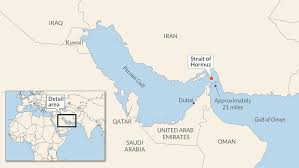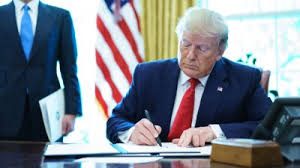
What happens in the Strait of Hormuz has a direct impact on some U.S. companies. Take for example the announcement Monday from Chevron Phillips Chemical Company LLC based in Houston, Texas.
Chevron and Qatar Petroleum are planning to develop, construct and operate a petrochemicals complex in Qatar to produce ethylene and high-density polyethylene which will be exported through the Strait of Hormuz, site of last week’s shootdown of a U.S. drone by Iran.
The facility will be constructed in Ras Laffan Industrial City. The signing of an agreement Monday morning involved Mark E. Lashier,President and CEO of Chevron Phillips Chemical and his Excellency Mr. Saad Sherida Al-Kaabi, who is the Minister of State for Energy Affairs.
Qatar Petroleum will own a 70 percent majority share of the joint venture and Chevron Phillips Chemical will own the remaining 30 percent.
Meanwhile, President Trump just double-downed on the Iranians with more sanctions announced Monday morning as he indicated in a tweet.
“China gets 91% of its Oil from the Straight, Japan 62%, & many other countries likewise. So why are we protecting the shipping lanes for other countries (many years) for zero compensation. All of these countries should be protecting their own ships on what has always been a dangerous journey. We don’t even need to be there in that the U.S. has just become (by far) the largest producer of Energy anywhere in the world! The U.S. request for Iran is very simple – No Nuclear Weapons and No Further Sponsoring of Terror!”
He later signed an executive order implementing the sanctions.

The new sanctions deny Iran Supreme Leader Ayatollah Ali Khamenei and his office access to key financial resources, according to NBC News. Khamenei’s assets are not spared from the new measures. In addition, the U.S. is sanctioning specific military leaders who were responsible for shooting down the US drone last week, according to Treasury Secretary Steven Mnuchin.





